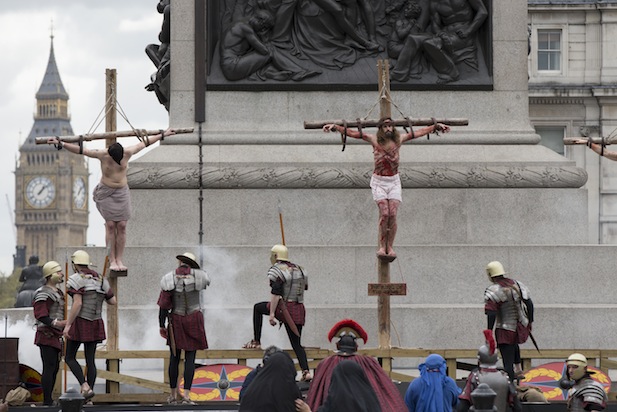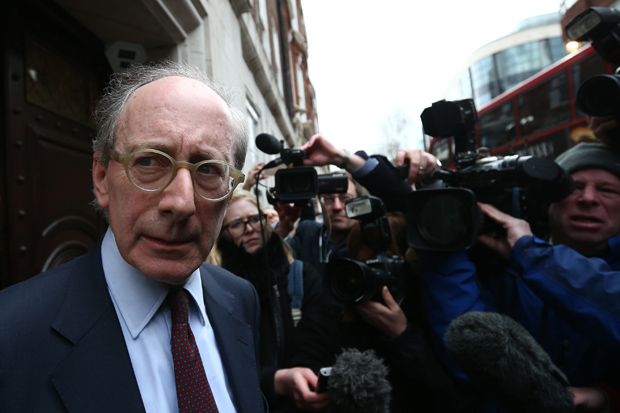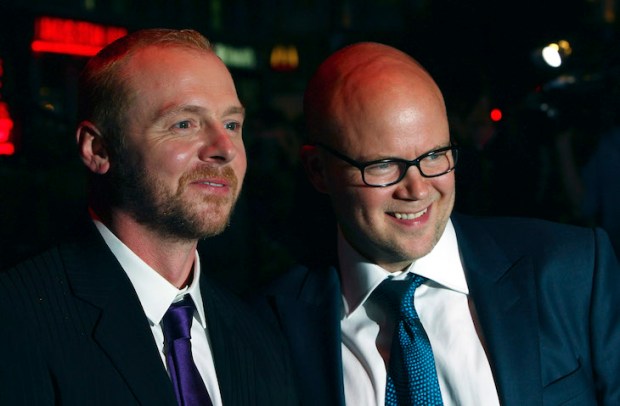I can’t say it was a great surprise to read a letter from a group of well-known authors, academics, comedians and politicians in the Telegraph earlier this week complaining about David Cameron’s description of Britain as a ‘Christian country’. As a general rule, any acknowledgment of Britain’s Christian heritage has members of the liberal intelligentsia reaching for their keyboards and angrily typing out words like ‘sectarian’, ‘alienation’ and ‘division’.
As Harry Cole argued in a blog post for The Spectator, the evidence that Britain is a Christian country is overwhelming. We have an established church, our head of state is also the defender of the faith and 59 per cent of us define ourselves as ‘Christian’. So why does the secular left feel obliged to deny this every time someone points it out?
No doubt it has something to do with a concern for the 41 per cent of Britons who don’t see themselves as Christians. They’re worried that worshippers of other religions will be discriminated against in some way — or, even if they’re not, that they’ll feel as if they are. For the Prime Minister to acknowledge that Christianity is more intimately bound up with our history and identity than, say, Islam, is to offend against the dogma of egalitarianism. Equality before the law isn’t enough. Non-Christians must regard themselves as equally respected — and so the secular left has done its best to make any disrespect of other religions a criminal offence.
I don’t wish to get into the rights and wrongs of this doctrine here, only to point out that it owes a great deal to Christianity, as does the secular left in general. Indeed, I don’t think it’s an exaggeration to describe the Labour party as a Christian political party.
I’m not just talking about the links between nonconformism, political radicalism and trade unionism, extensive though they are. I also mean the principle of equality itself, which originated in the idea that all men are equal in the eyes of God. After all, if you take away the idea that God created man in his own image, the notion that human life is sacred, that we’re all entitled to various rights irrespective of how we behave, doesn’t make much sense. If we feel an attachment to this idea in spite of not believing in God, it’s because some residue of Christian morality has remained, not because it’s possible to base this doctrine on a rational foundation.
Theo Hobson pointed this out in his Spectator cover story on Christianity last week and the same observation was made by the American writer Marilynne Robinson when discussing the Declaration of Independence. ‘Is it self-evident that all are created equal?’ she asked. ‘Only in a religious conception.’ This link, between equality and Christian theology, is now regarded as incontrovertible by many left-wing intellectuals, including Terry Eagleton. In Reason, Faith and Revolutions: Reflections on the God Debate, he acknowledges that his own evangelical socialism has its roots in Christian morality.
An additional point worth making is that the decline of Christianity in the developed world, particularly among the working class, has significantly contributed to the social and economic deprivation that the secular left claims to be so troubled by. In Coming Apart, the American social scientist Charles Murray argues that the freewheeling liberalism espoused by the left in the 1960s and 1970s is partly responsible for the miseries of today’s underclass. It was this philosophy that helped persuade working-class women it was socially acceptable to have children out of wedlock, convinced working-class men it was OK not to have a job, and removed any stigma attached to drug-taking, alcoholism and criminality.
The great irony of this debate is that the letter-writers who criticised David Cameron’s embrace of Christianity have not themselves abandoned Christian virtues. They may have endorsed secular liberalism in theory, but not in practice. By and large, they are happily married, bring up their children responsibly, pay their taxes, obey the law, give back to society, don’t drink to excess, don’t take drugs and believe in the value of hard work. If they really wanted to help the poor and dispossessed like the good Christians that they are, they would put aside their fears of appearing ‘judgmental’ and recommend that everyone live by these rules, instead of criticising anyone who dares to espouse the moral framework that underpins them.
Got something to add? Join the discussion and comment below.
Get 10 issues for just $10
Subscribe to The Spectator Australia today for the next 10 magazine issues, plus full online access, for just $10.
Toby Young is associate editor of The Spectator.
You might disagree with half of it, but you’ll enjoy reading all of it. Try your first month for free, then just $2 a week for the remainder of your first year.















Comments
Don't miss out
Join the conversation with other Spectator Australia readers. Subscribe to leave a comment.
SUBSCRIBEAlready a subscriber? Log in